The launch of the Ryzen 7 7800X3D puts AMD firmly in control of the gaming CPU market. The affordable price point, power draw, and platform pricing make it a better option than any Intel chip on the market. In this post, we’ll test the 7800X3D across 13 games, with and without ray-tracing, to see where it stands compared to the Core i9-13900K.
Test Bench
- Motherboard: ASUS ROG X670E Hero/Z790 Hero.
- Memory: 16GB x2 DDR5 6000MT/s CL38.
- Cooler: Lian Li Galahad x360.
- GPU: GeForce RTX 4090 FE,
- PSU: Corsair HX1000i.
Ryzen 7 7800X3D vs Core i9-13900K: 720p Gaming Benchmarks
In gaming, GPUs scale across resolutions and the graphics settings used. CPUs, however, are only affected by the polygon counts (rendering quality) and not the rendering resolution. Therefore, we tested the two CPUs at 720p to reduce any possible GPU bottlenecks. The mighty RTX 4090 should have no difficulty rendering even the most taxing games at 720p and it’ll be held back by the CPU (read previous lines).
The Core i9-13900K snags a win in “A Plague Tale” both with and without ray-tracing. It’s marginally faster than the Ryzen 7 7800X3D with similar lows. The tables get turned in Assassins’ Creed Valhalla as the 7800X3D edges past the 13900K in Ubisoft’s latest title.
Crysis Remastered has always preferred Intel chips and that hasn’t changed even with the release of the Ryzen 2nd Gen V-Cache processors. The Core i9-13900K is 20% faster than the 7800X3D in Crytek’s ray-traced game.
Cyberpunk 2077 is faster on the Ryzen 7 7800X3D, leading the Core i9-13900K by 33% and 17% with and without ray-tracing, respectively. Dying Light 2 marks an even stronger win for the 7800X3D with a lead of 80% over the 13900K with ray-tracing turned on.
F1 2022 is the third consecutive title in our list to favor the Ryzen 7 7800X3D, beating the i9-13900K by 15% and 8% with and without ray-tracing, respectively.
Hitman 3 is a particularly CPU-intensive game, and the 7800X3D takes full advantage of that. It crushes the Core i9 by a massive margin of 70%. With ray-tracing thrown into the mix, the delta dwindles to 42%.
Hogwarts Legacy is yet another game that runs much better on the Ryzen 7 7800X3D. The AMD chip maintains a lead of over 2x at 720p ultra which shrinks to 39% with ray-tracing on.
Continued on the next page…
Ryzen 7 7800X3D vs Core i9-13900K: 720p Gaming Benchmarks
Shadow of the Tomb Raider is one of the most well-optimized titles on PC. It runs well on both CPUs but the Ryzen once again pulls ahead. In traditional rasterization, the 7800X3D is 24% faster while ray-tracing sees the lead drop to just 8%.
The Callisto Protocol is the third game to favor the Core i9-13900K. The Intel part is 12% faster at 720p Ultra. Enabling ray-tracing results in a tie with slightly better lows for the 13900K.
Tiny Tina’s Wonderlands is another decisive win for Team Red, leaving Intel with just four victories if you take into account Metro Exodus: Enhanced Edition, a game with plenty of ray-traced technologies and multi-bounce GI.
Ryzen 7 7800X3D vs Core i9-13900K: Frametimes
While the frame rates represent the average performance in a game, they fail to take into account frame-to-frame inconsistencies. That’s where frame times come into the picture. They are a measure of the time taken to render individual frames through the course of the benchmark, highlighting stutters (if any).
A Plague Tale stutters a little on both CPUs, but the Core i9-13900K has multiple notable spikes through the course of the benchmark. The Ryzen 7 7800X3D is much smoother in comparison. Cyberpunk 2077 runs well on both chips but the Ryzen 7 delivers slightly tighter frame times, overall.
Hitman 3 is quite taxing with ray-tracing, as neither CPU produces a smooth graph. However, the Ryzen 7 7800X3D is clearly the better chip, seeing fewer/shorter spikes than the Core i9-13900K.
Ignoring the initial part of the benchmark (where the 7800X3D chokes), Hogwarts Legacy performs roughly the same on the two processors. Metro Exodus, on the other hand, is a completely different story. The Ryzen 7 7800X3D faces unbearable stutters throughout the test while the Core i9 registers a clean graph. The X3D could definitely do with some tweaks here.
Thermals and Power
Continued on the next page…
Thermals and Power
The Ryzen 7 7800X3D is without a doubt the most energy-efficient gaming CPU on the market. Despite crushing the Core i9-13900K by a massive margin, it sips just 59W on average. At 82C, it runs a little toasty but it’s nothing you’ll have to worry about.
The Core i9-13900K draws over 3x more power (184W) with a thermal peak of 100C. Despite the use of a 360mm AIO cooler, it averaged 88C with a CPU clock of 5.5GHz.
Conclusion
I’ve seen a lot of outlets claim that the Ryzen 7 7800X3D and the Core i9-13900K perform roughly the same. While that may be true for their set of benchmarks, our suite couldn’t disagree more. The 7800X3D bags a clear victory with 8 wins (just 4 for the 13900K) while drawing three times less power and running notably cooler.
Further reading:
- Intel i9-13900K vs AMD R9 7950X3D Gaming Benchmarks.
- AMD Ryzen 9 7900X3D/7950X3D Get $60/$69 Off: 7900X3D Cheaper than the Core i9-13900K.
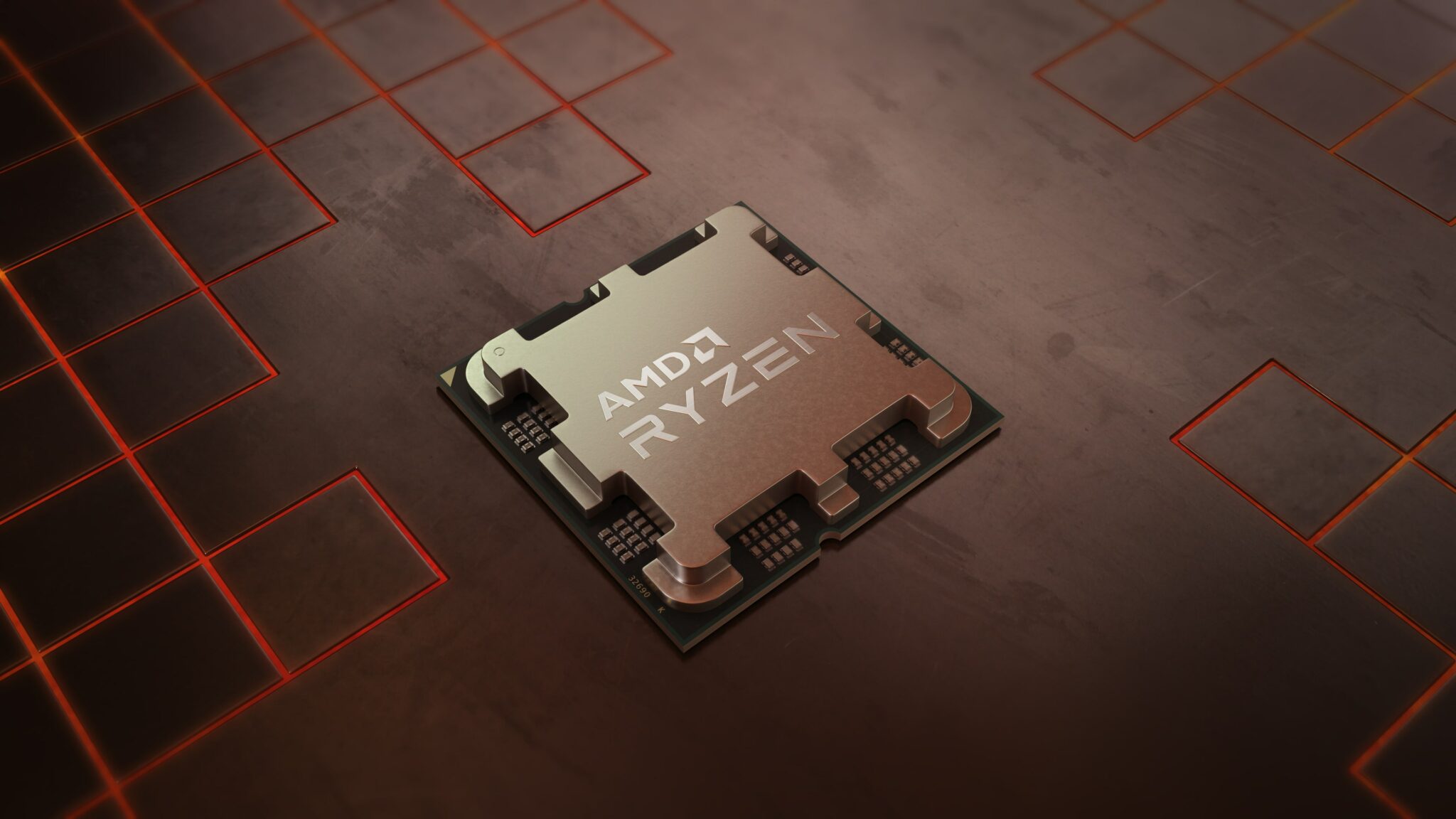
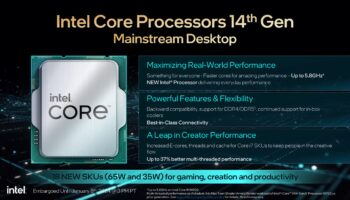 13th Gen i9-13900K is ~30% Slower at Intel Spec than Board Partner “Optimized” Power Limits
13th Gen i9-13900K is ~30% Slower at Intel Spec than Board Partner “Optimized” Power Limits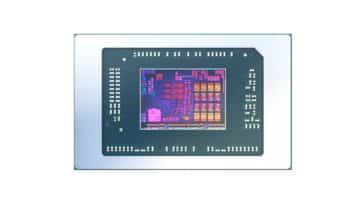 AMD Ryzen 9000 “Strix Point” CPU: Nearly As Fast as Intel’s Core Ultra “Meteor Lake” at 1.4 GHz
AMD Ryzen 9000 “Strix Point” CPU: Nearly As Fast as Intel’s Core Ultra “Meteor Lake” at 1.4 GHz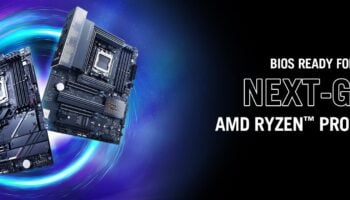 ASUS X670/B650/A620 Motherboards are Ready for AMD’s Ryzen 9000 “Zen 5” CPUs
ASUS X670/B650/A620 Motherboards are Ready for AMD’s Ryzen 9000 “Zen 5” CPUs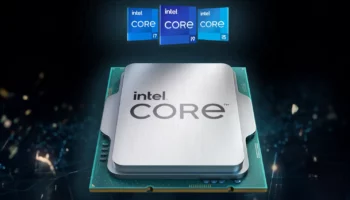 14th Gen Core CPUs 10%+ Slower with Intel’s Spec Power Limits, Falls Behind the Ryzen 9 7950X
14th Gen Core CPUs 10%+ Slower with Intel’s Spec Power Limits, Falls Behind the Ryzen 9 7950X